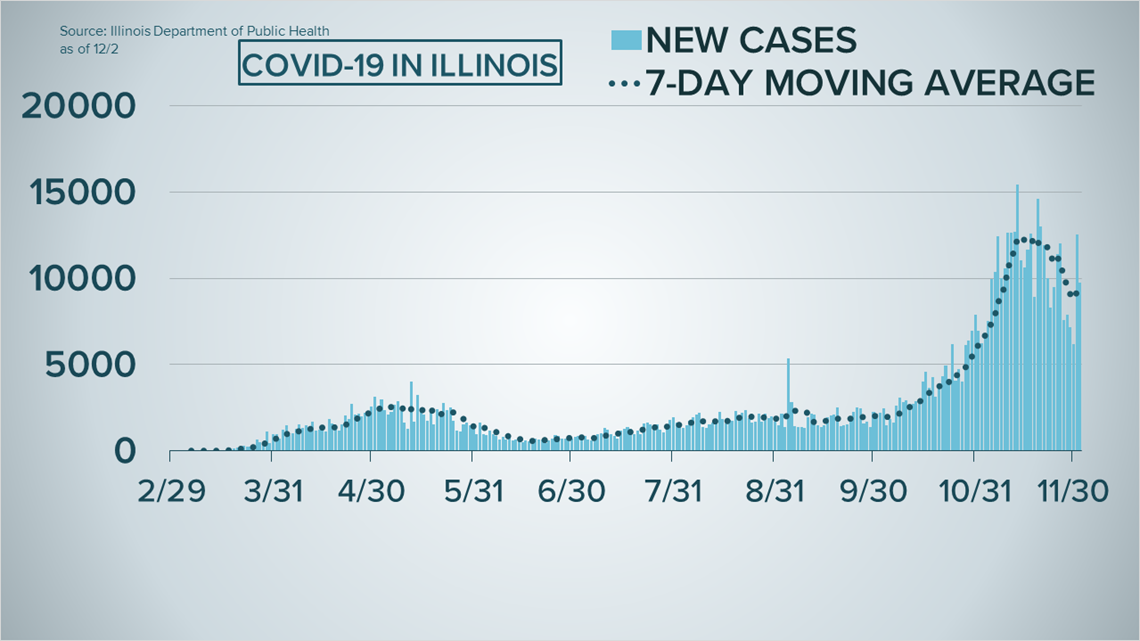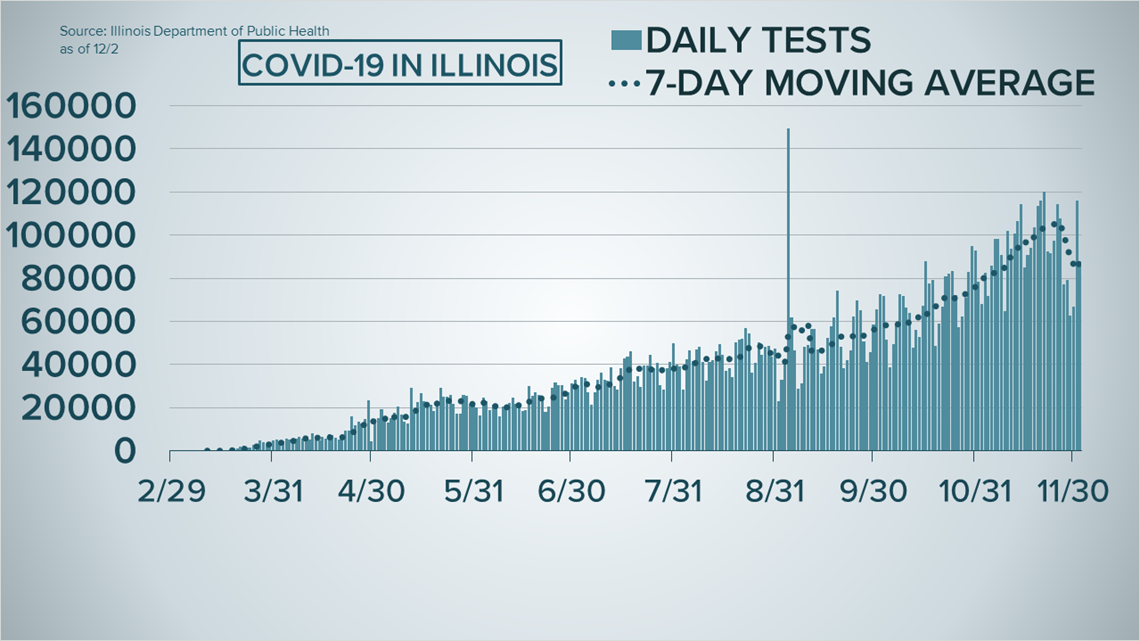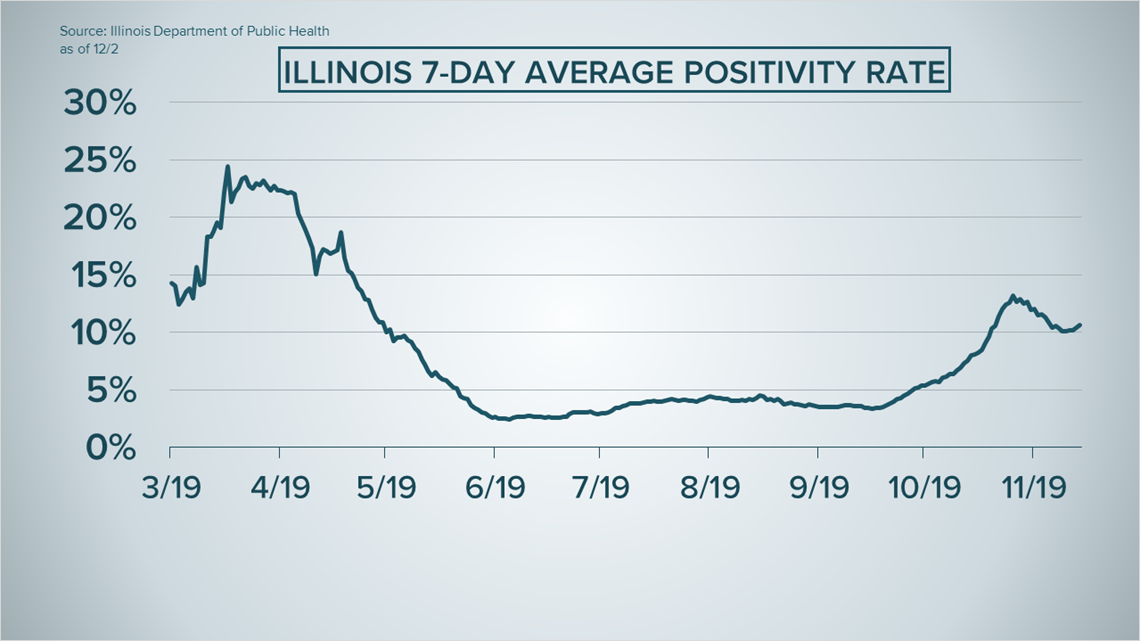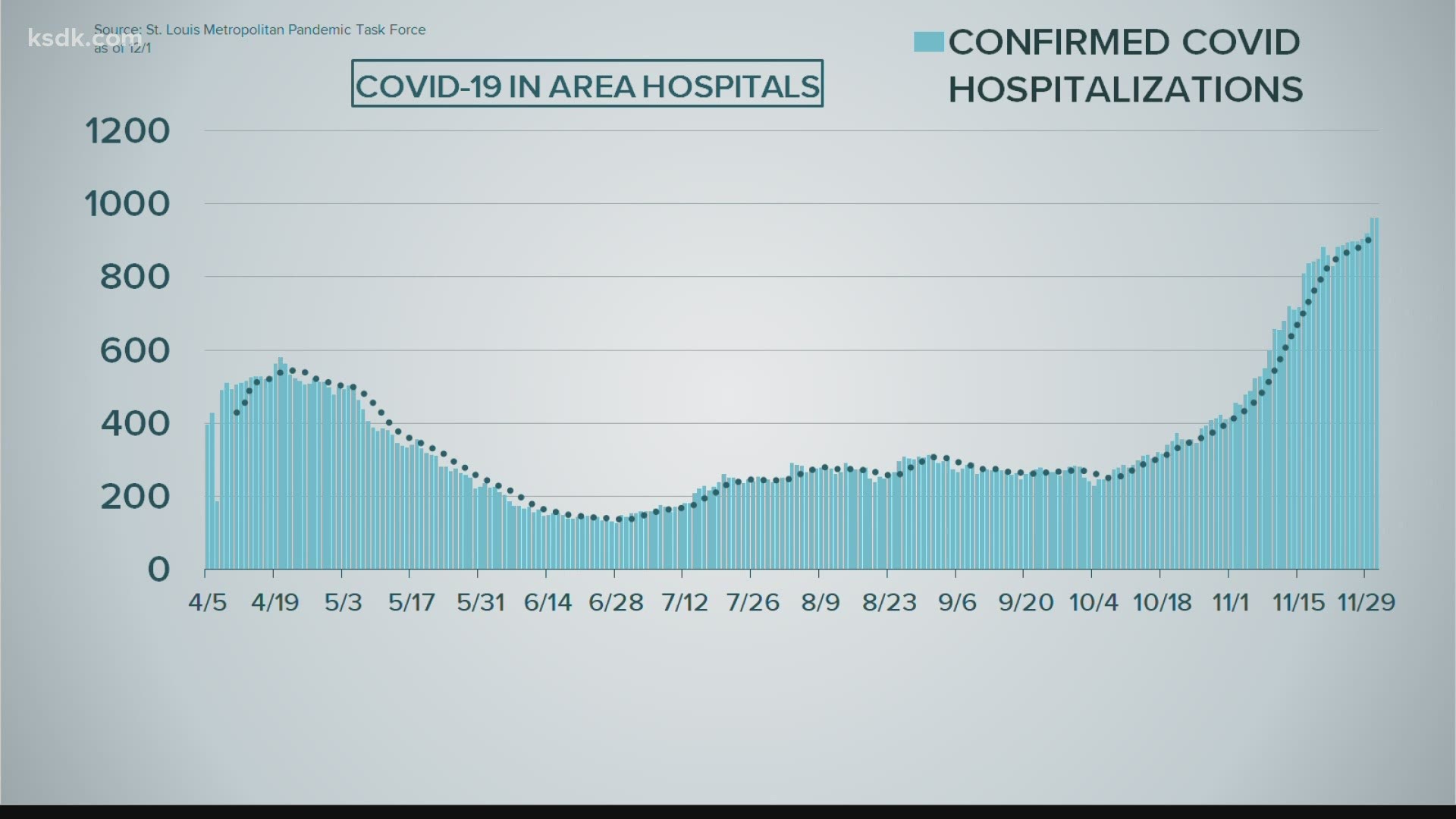ST. LOUIS — Dr. Alex Garza said everyone in the St. Louis area is needed to chip in to avoid a collapse of the health care system under the pressure of an expected coronavirus surge at the end of the year.
"We're entering a really critical phase in our war right now," Dr. Garza said, "a phase where we're going to need any and all efforts to prevent the health care system from collapsing and to save as many lives as we can in our community."
Dr. Garza — the incident commander for the task force — said each briefing through the end of the year would likely be more critical than the last due to an expected surge in cases related to the Thanksgiving holiday.
Dr. Garza said health care workers have been described as the front lines in the fight against the coronavirus, but insisted that they are much more than that.
"Well, the truth is the front line assumes that you have a rearguard or rear echelon in reserve forces, and, of course, we have neither in this war," he said. "So not only are these brave men and women on our front lines, they also represent our last line of defense."
He said that pressure has resulted in burnout, exhaustion and health issues among the already depleted staff. The reinforcements they are getting are needed just to keep staffing at the current level, which was short even before the pandemic.
Because of this shortage and the increased volume of patients, Garza said hospitals are having to make choices on who gets a hospital bed and who does not.
"Obviously, if we don't believe they're going to be safe, we're not going to discharge them, but we are pushing the limits," Dr. Garza said. "And we know that patients are coming back to our hospitals because they've gone home and done poorly and need to be readmitted to the hospital."
Dr. Garza said some COVID-19 patients who were sent home have returned to the hospital after suffering respiratory failure or a stroke. Those people who return due to the effects of COVID-19 are not counted in the totals presented by the task force.
Dr. Garza said he recently toured one of the task force hospitals after feeling like "talking just isn't doing that much good." He said talking with the people in the hospitals — the doctors, nurses, technicians and patients — renewed his motivation, as it has in the past.
"Those health care workers, the patients and their families, they want us to keep talking about COVID in hopes that people will adjust their behavior," Dr. Garza said. "They want us to talk about this in the hopes that elected officials will make policy decisions that we know will slow the surge. And because of that, we will continue to talk about this."
The update comes as the average number of hospitalizations continues to increase in the St. Louis area. On Wednesday, the task force reported 934 COVID-19 hospitalizations, down slightly from Tuesday, but the seven-day moving average increased to a record number, 925.
The task force numbers update for Wednesday is as follows:
- New hospital admissions (data lagged two days) increased from 118 yesterday to 119 today.
- The seven-day moving average of hospital admissions (data lagged two days) decreased - from 120* yesterday to 116 today.
- The seven-day moving average of hospitalizations increased – from 919 yesterday to 925 today, a new seven-day moving average record.
- Inpatient confirmed COVID positive hospitalizations decreased – from 962 yesterday to 934 today.
- Inpatient suspected COVID positive hospitalizations decreased – from 99 yesterday to 89 today.
- The number of confirmed COVID positive patients in the ICUs decreased – from 203 yesterday to 196 today.
- The number of confirmed COVID positive patients on ventilators increased – from 123 yesterday to 128 today.
- Across the system hospitals, 145 COVID-19 patients were discharged yesterday, bringing the cumulative number of COVID-19 patients discharged to 11,095.
In Missouri, the health department reported 305,370 cases and 4,043 deaths as of Wednesday, a single-day increase of 2,679 cases and 37 deaths.
According to the department's dashboard, cases and testing have decreased by more than 30% over the last seven days when compared to the previous seven days.
The state's seven-day average positivity rate was 20.3%, the same as reported yesterday. The seven-day average positivity rate is delayed 72 hours to improve accuracy, so the number reported Wednesday represents the positivity rate on Nov. 29.

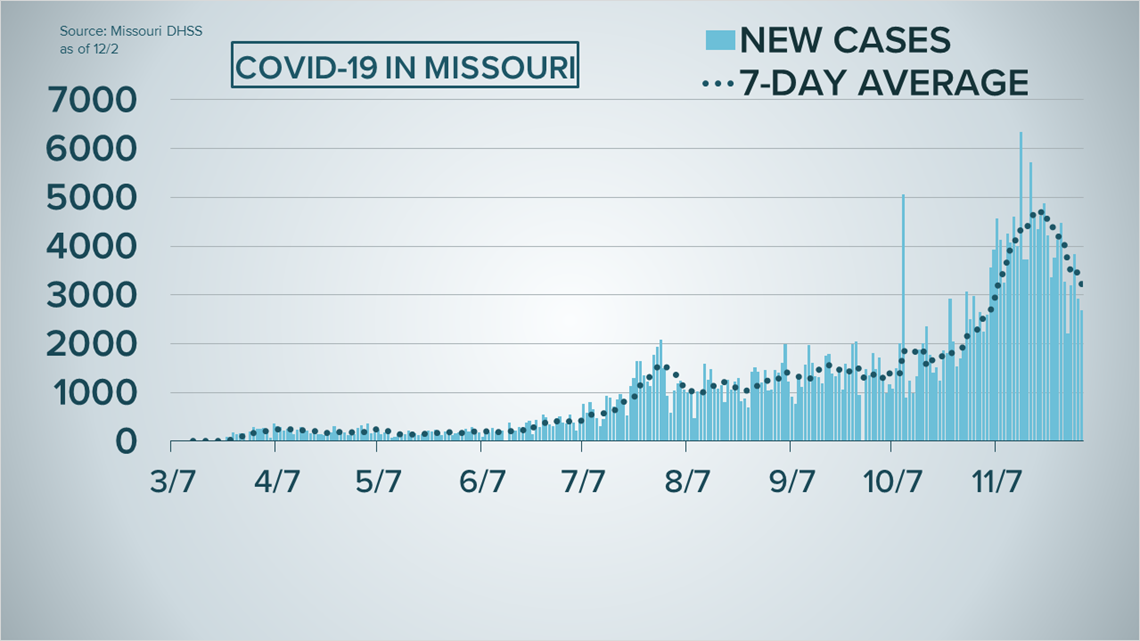

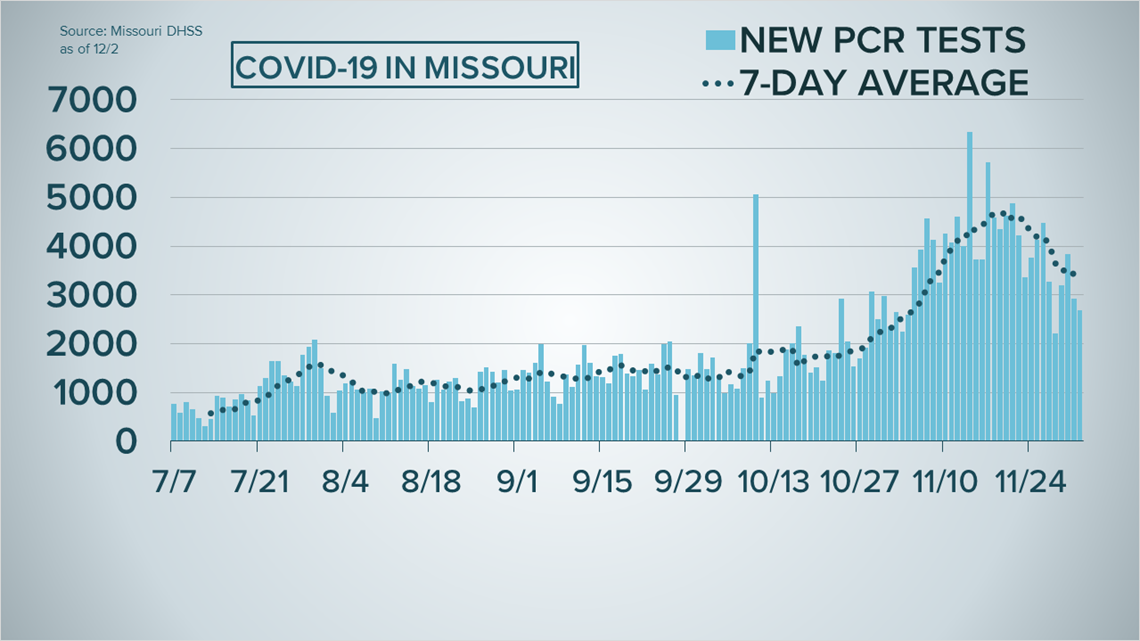

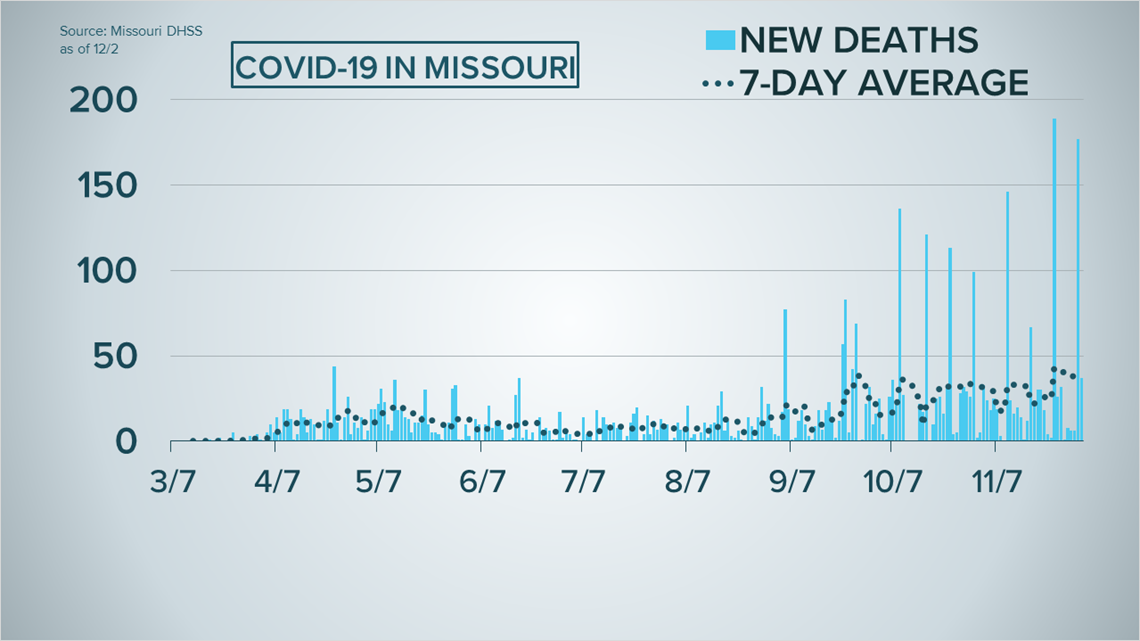

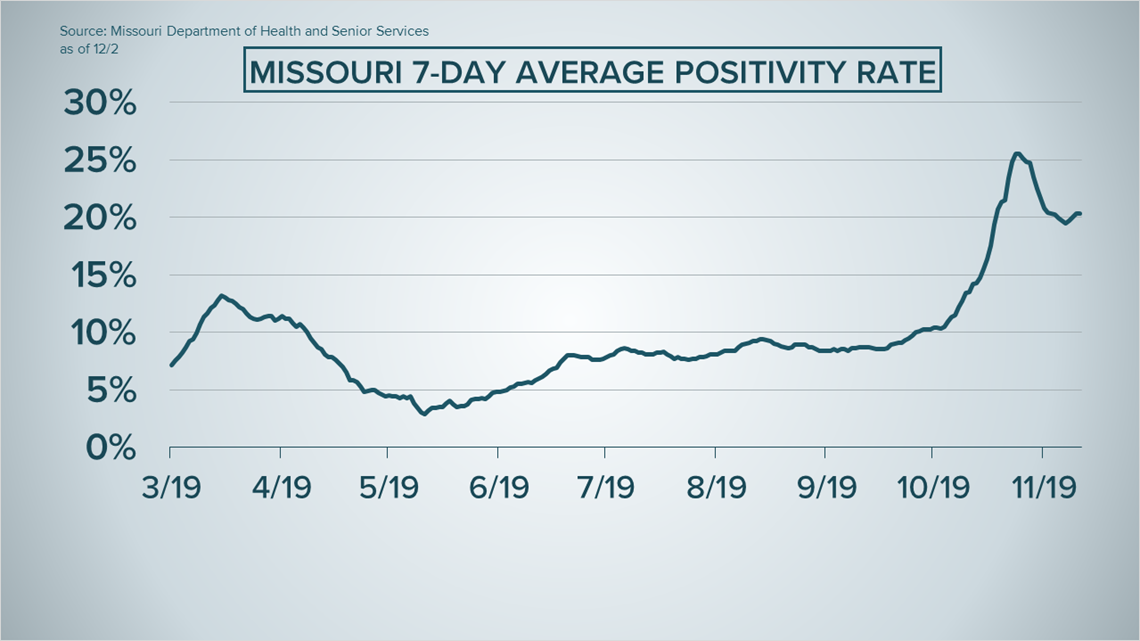
The increase of 236 deaths reported by the state was a single-day record, but the health department said some of the data included numbers from the holiday weekend which was delayed.
The seven-day average positivity was 10.6%, up from 10.4 yesterday.

